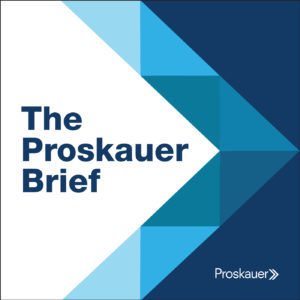On January 5, 2023, the Federal Trade Commission (“FTC”) proposed an expansive new rule which would impose a near-complete ban on the use of noncompetes (the “Proposed Rule”) by employers. The Proposed Rule is the culmination of the FTC’s recent efforts, following President Biden’s July 9, 2021 Executive Order on promoting competition in the economy,
restrictive covenants
FTC Enforcement Action Limits Noncompetition Agreements in “Sale of Business” Transactions
On July 9, 2021, President Biden issued an Executive Order, in which he described the nation’s antitrust laws as the “first line of defense against the monopolization of the American economy” and encouraged the Federal Trade Commission (“FTC”) to “curtail the unfair use of non-compete clauses and other clauses or agreements that may unfairly limit…
FTC and DOJ Hold Workshop On Non-Compete Agreements
As we reported this past summer, President Biden signed an Executive Order titled “Promoting Competition in the American Economy.” At the time, President Biden urged the chair of the Federal Trade Commission (the “FTC”) to “curtail the unfair use of non-compete clauses and other clauses or agreements that may unfairly limit worker mobility.” Since the…
[Podcast]: Developments & Trends Across the Country in Non-Compete Law
In this episode of The Proskauer Brief we are joined by partner Guy Brenner, who heads up Proskauer’s D.C. Employment Law practice and co-chairs our Non‑Compete and Trade Secrets Practice group and Daryl Leon, an associate in Proskauer’s New York office and senior member of the Firm’s Non‑Compete and Trade Secrets Practice Group. Employers should listen in as we discuss key developments and trends we’ve been seeing across the country in non-compete law.
Illinois Governor Signs Restrictive Covenant Bill Into Law
On August 13, 2021, Illinois Governor J.B. Pritzker signed into law an amendment to the Illinois Freedom to Work Act (820 ILCS § 90), which imposes restrictions on the use of non-competition and non-solicitation (employee and customer) restrictive covenants for Illinois employees. The law takes effect on January 1, 2022, and only applies to restrictive…
President Biden Signs Executive Order Targeting Noncompetition Agreements
Overview
On July 9, 2021, President Biden signed an Executive Order on Promoting Competition in the American Economy (the “Order”), which, among other things, “encourage[s]” the “Chair of the [Federal Trade Commission (the “FTC”)] . . . to consider working with the rest of the Commission to exercise the FTC’s statutory rulemaking authority…

